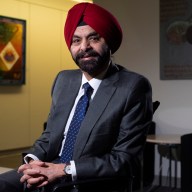According to the Heart and Stroke Foundation, some 300,000 Canadians live with the effects of a stroke. Yet many in the health care community are ill-equipped to care for patients or their families, or have access to the latest medical breakthroughs when treating them.
With this in mind, Ryerson’s Chang School for continuing education co-developed, with members of the Sunnybrook Health Sciences Centre and the North & East GTA Ontario Stroke Region and Network, a certificate program in advanced neuroscience-stroke care, which officially launches this fall.
Courses include brain structure and cognition, which looks at how the brain is structured and how damage to its various parts affects a person’s understanding and behaviour, and critical appraisal of evidence, which teaches students how to evaluate new findings and apply them in practice.
“These courses aren’t telling people what they have to do to take care of stroke patients today,” says Paula Mastrilli, the program’s coordinator. “They’re telling people how to look at the emerging science, how to critically use it, review it, keep their practice up to date. We’re not giving people fish, but teaching them how to fish.”
The program’s six courses have been designed as a hybrid of distance education and video conferencing, says Mastrilli. Each course is 12 weeks in length, with an online module each week, and four and a half video conferences. The conferences emphasize teamwork and interdisciplinary problem solving.
“All health professionals learned their profession in their specialty,” Mastrilli says. “Nurses in nursing, physio learned physiotherapy. It’s been a struggle to redesign education that basically says in order to deliver health care, you have to practice together.”
To apply, students “basically need to be health professionals with a minimum baccalaureate degree,” Mastrilli says. “We’ll consider others – sometimes people come forward who don’t have a degree in a regulated health profession, but they’re part of a team and they’re working with people with strokes, so we accept them.”
For more information, visit ce-online.ryerson.ca.
















